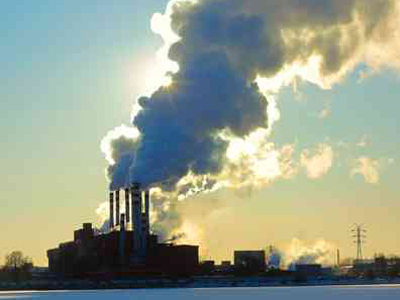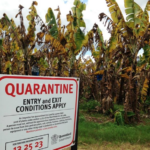While Canada and several of its provinces send heavyweights down to the U.S. to influence the decision on the Keystone XL pipeline, back home the commitment to reduce CO2 and other greenhouse gas emissions continues to be lightweight to say the least. Our federal Minister of Energy is speaking in Chicago in the next week to a business audience when I am sure he will stress how we are aligning our emission reduction targets in direct lockstep with the U.S. for trucks and automobiles. We have provincial premiers visiting Washington to talk with John Kerry and members of the Senate and House of Representatives. I am sure what we are not telling them is news that just got announced.
The headline in today’s Report on Business for The Globe and Mail, a national newspaper states:
Alberta cancels funding for CCS project
CCS is carbon capture and storage or sequestration (not the same as budgetary sequestration). I have written about CCS projects a number of times. Alberta, the Canadian government and industry partners have been partially funding several of these over the last decade demonstrating their commitment to reduce CO2 emissions. But for many reasons, one by one, the projects have been mothballed or cancelled.
The latest involves a site where coal being mined is processed into synthetic natural gas with CO2 a byproduct of the process. Located at Swan Hills the mothballed project developers blame low natural gas prices as a primary reason. In the announcement Swan Hills Synfuels President, Douglas Shaigec, noted that his company is still committed to going ahead with a demonstration CCS installation. It’s the government that is pulling out its $285 million subsidy. And when natural gas prices rise the operators at Swan Hills intend to implement CCS. But that could be a long time coming with hydraulic fracturing bringing new natural gas fields in the Midwestern U.S. into play leading to a glut on the market.
About 13 months ago another Alberta-backed CCS project was cancelled. The Pioneer project, owned by TransAlta Corporation, was designed to capture carbon from a coal-fired power plant. TransAlta, even with government money, could not justify the expense. So that leaves the Royal Dutch Shell Quest project (see picture below) which I have written about, and the Alberta Carbon Trunk Line, a 240 kilometer pipeline that takes CO2 from a fertilizer plant and pipes it to existing Alberta oil fields to increase their yields, as the only two remaining.
Currently Alberta has committed $1.3 billion to CCS projects according to Premier Alison Redford but it looks like much of the investment is getting frittered away as one after another of these CCS projects folds. Canada has only one other CCS project on the go in which the federal government is an investor. That’s the SaskPower Boundary Dam coal-fired powerplant in Saskatchewan. The CO2 is being captured and sequestered from the plant’s chimney flue gases.
So where are all the CCS projects associated with the oil sands? Not a single one. Doesn’t make the argument for Keystone XL look any better and reinforces the proposition that a “carrot and stick” approach to managing carbon, and not government subsidies, is a more effective means to change corporate behaviour. Putting a price on carbon is the answer and both the U.S. and Canada need to make this happen.
















